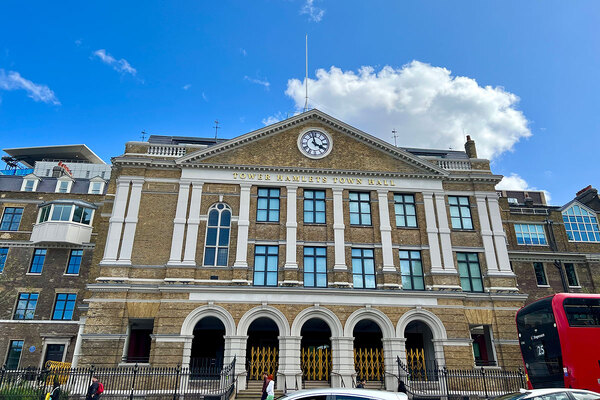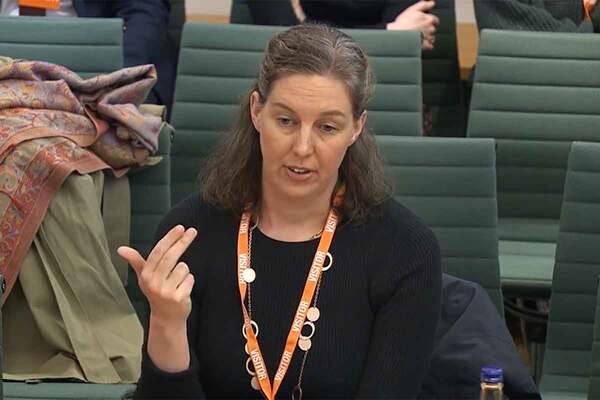You are viewing 1 of your 1 free articles
City council refuses to pay part of ombudsman remedy over ‘unavoidable’ break of six-week law
A city council has refused part of the Local Government and Social Care Ombudsman (LGSCO)’s recommendation to compensate a woman after it broke the six-week legal cap on leaving homeless families in B&B accommodation.
Leicester City Council agreed to pay the mother, who was homeless with her children after fleeing domestic, £500 after it failed to respond to her concerns about the suitability of the refuge she was placed in.
However, it refused the watchdog’s recommendation to pay the family £1,300 for the distress caused by living in unsuitable B&B accommodation for longer than the six-week legal limit and a further £150 per month for every month she remained in it.
The family stayed in B&B accommodation for 19 weeks.
The legal limit to place families in B&B-type accommodation is six weeks, but councils often exceed this due to homelessness pressures and lack of housing.
Leicester argued that the national housing crisis means going over the limit is “unavoidable”. It said making all of the payments recommended would be “disastrous for local councils, setting a precedent that could cost them around £130m”.
The LGSCO stepped in to investigate after the mother and her children were forced to flee their home to escape domestic abuse.
The council first placed the family in interim B&B accommodation before referring them to a refuge which provided self-contained housing.
The mother contacted the council repeatedly as she thought the refuge was negatively affecting her children’s health conditions and was too far away from her support network. However, Leicester failed to respond.
When the council did get in touch following her complaint to the ombudsman, it told the mother to go back to the refuge for support.
The watchdog said that the council “finally” accepted it had a duty to house the family around four months “after it should have done so”, and offered them B&B accommodation as temporary housing, which they moved into after the refuge.
However, the LGSCO said it failed to tell the mother that it had accepted the main housing duty towards her family and of her right to appeal the suitability of the accommodation offered through the courts.
It said the council eventually offered the family a one-bedroom property. While the council acknowledged that it was not suitable for the family, it “again failed to tell the mother she could appeal”.
Amerdeep Somal, the local government and social care ombudsman, said: “While I acknowledge the work Leicester City Council has already done to improve its support for homeless people in the city and its acceptance of the service improvements I have recommended, I am disappointed with its reluctance to fully acknowledge what has gone wrong in this case.
“It is not accepting the gravity of the injustice to this family by not agreeing to pay the financial remedy I have recommended.
“The law states that families should only be put in bed and breakfast accommodation as a last resort, and this should be for no longer than six weeks.
“This family was in bed and breakfast accommodation for 19 weeks. The family was split over two rooms and had no access to cooking facilities, which no doubt had a significant impact on their mental health.
“The council has told me it has 170 other families who have been in this sort of accommodation for longer than six weeks. I hope the changes it is making will ensure that other families in Leicester are considered appropriately, and informed of their appeal rights in future.”
Leicester Council has agreed to draw up an action plan for reducing the number of families it has in B&B accommodation. It will also train or remind officers about their duties towards homeless families and improve its template letters to ensure they reflect people’s rights.
However, on the compensation for the six-week breach, Leicester argued that the national homelessness crisis has led to “unprecedented and unavoidable use of temporary accommodation”.
It said the LGSCO’s recommendations are based on legislation that is “more than 20 years old and does not take account of the national housing crisis”.
The council said it will not accept the six-week rule recommendation “on the basis that the lack of suitable housing is out of its control, despite its best efforts to provide more affordable housing in the city”.
Leicester spends around £16m a year on homeless services, including the prevention of homelessness, and temporary accommodation.
Elly Cutkelvin, deputy city mayor for housing at Leicester Council, said: “Five years ago we had no families living in B&B accommodation in Leicester.
“This year – owing to successive governments’ failures to tackle the housing crisis by building more new homes – we have 171 in B&Bs and a further 365 in other temporary accommodation, including hotels and self-contained flats.
“I understand how distressing this must be and the impact it will have on everyday life.”
She said that if a precedent were set by the LGSCO’s recommendation, the council would have to pay out £220,000 in recompense, which is “money we simply don’t have”.
“Nationally, there are at least 100,000 families living in unsuitable temporary accommodation. If all councils were required to make payments to these families, this would cost around £130m, which would inevitably push more councils over the edge of the cliff they are already facing,” Ms Cutkelvin said.
She said the council has invested more than £350m in new affordable housing over the past six years, delivering 1,200 homes. It also approved £45m of funding for 225 temporary accommodation properties and invested more than £1.2m in additional homelessness staff.
Ms Cutkelvin added: “Exposing us to paying hundreds of thousands of pounds in compensation will only serve to significantly set back our plans to fix this wider problem.
“We do accept that there were some failings in our service in this case. We are sorry for this and have apologised to the family concerned. Staff training and recruitment is under way to ensure these failings are not repeated.”
Sign up for our Council Focus newsletter
Already have an account? Click here to manage your newsletters












